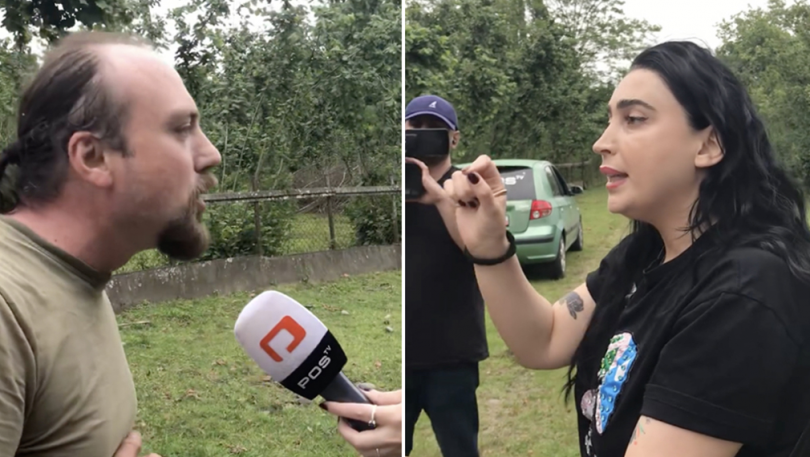
Egor Kuroptev, Director of the Free Russia Foundation in South Caucasus, issued a statement expressing “deep concern” over the increasing number of Russian dissidents denied entry to Georgia over the last few months and called on the Georgian state officials to take a closer look at the matter and let the banned dissidents over the border.
Mr Kuroptev said the dissidents are fleeing to Georgia because of immediate security and persecution risks in Russia and many of them already have their family members already settled in Georgia.
There are currently at least eight journalists, human rights defenders, and activists waiting in third countries to get back to their families in Tbilisi and have never violated any Georgian law, Kuroptev claimed.
According to the Free Russia Foundation, more than 13 such individuals have already been banned from entering Georgia.
One of the recent and prominent cases is Saveliy Frolov 21, a Russian activist, who was turned back by Georgian border police two times and was consequently arrested in the end of October by the Russian FSB officials near the Georgian border. He currently faces charges of “treason” by the Russian government.
Kuroptev argued Frolov’s case demonstrates “highly increased security threats for dissidents who are trying to find a safe place in Georgia,” and that there is a persistent fear of rejection when Russian nationals living in Georgia want to temporarily leave the country.
Concerns over Georgia’s hostility towards Putin dissenters has been growing already for some time.
Dmitry Aleshkovsky, Russian journalist and activist, as well as prominent opposition leader Lubov Sobol were denied entry to Georgia in the summer.
Ms Sobol said in a subsequent statement, Georgia’s “bowing to Putin” was the ban’s real reason.
In March David Frenkel, a journalist of the independent media group Mediazona has also been rejected by Georgian officials on the border after dozens of hours of waiting.
Mikhail Fishman, an opposition TV Rain journalist was also turned back from the Georgian border as well as Insa Oguz, a Russian blogger, and activist who was trying to escape persecution by the Russian government and was also rejected.
Georgian Public Defender, Nino Lomjaria, expressed concerns about the poor treatment of Insa Oguz and demanded to visit her, but was denied by the Georgian authorities.
Minister of Internal Affairs of Georgia said investigation against Oguz “by another country” (meaning Russia) made it impossible for her to stay in Georgia while also denying a possibility to apply for asylum.
Alexey Romanov, another Russian journalist, reported in July that he was also rejected and supposed the real reason for this was his positive attitude towards Georgia’s currently imprisoned former president Saakashvili.
Georgian and Russian opposition media also reported rising number of entry rejections of North Caucasian citizens, specifically Chechens.
Conversely, Russian nationals with strong links to Russian oligarchs and media propagandists, such as Pavel Kopilkov, son of a Russian oligarch Alexander Kopilkov, who publicly insulted Georgians in Tbilisi’s one of the main avenues in November.
Ksenia Borodina, hostess of Dom-2, a popular show on TNT, a TV station owned by Gazprom Media and headed by US-sanctioned pro-Putin journalist Tina Kandelaki was also spotted holidaying in Georgia. Ms. Borodina confirmed she had visited Russia-occupied Abkhazia recently and was “welcomed into Georgia” while Russian opposition figures with no track record of breaching Georgia’s Law on Occupied Territory have consistently been banned.





